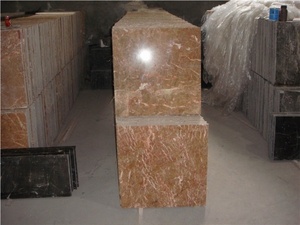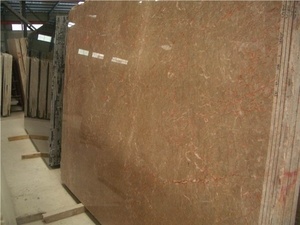(49 products available)





























































































































Marble in Dubai is a popular building stone. It is known for its gloss, white color, and beauty. Due to its beauty, it is widely used in homes, offices, and public buildings. There are different types of marble in Dubai, and they include the following:
Calacatta Marble:
This marble is white and has gray and gold veining. It is one of the most luxurious marbles and is widely used in Dubai. Calacatta marble is used in high-end kitchens and bathrooms because of its beautiful look. It is also used as a decorative wall in Dubai hotels and resorts. There are different types of Calacatta marble, such as Calacatta Gold and Calacatta Borghini.
Crema Marfil Marble:
This type of marble is beige with irregular brown veins. It is popular in Dubai because of its warm and classic appearance. It is used in residential flooring and wall cladding. It is also used in commercial spaces, creating an elegant and timeless atmosphere. Additionally, it is easy to maintain and clean, making it a practical choice for high-traffic areas.
Emperador Marble:
This marble comes in dark brown with light veins. It is loved by many designers in Dubai because of its unique and dramatic appearance. It is used in luxury bathroom fixtures and countertops. It is also used in fireplace surrounds and accent walls to create a focal point in a room.
Arabescato Marble:
This marble has a white background with a complex web of gray and black veins. It is versatile and can be used for both modern and traditional designs. It is used for statement kitchen islands and high-contrast bathroom vanities. It is also used for luxurious staircases and flooring that makes a statement.
Crema Nivaria Marble:
This marble has a light cream background and subtle gray veining. It is elegant and offers a softer look. It is used in Dubai's bright and airy spaces, such as well-lit bathrooms and spacious kitchens. It is also used in classical designs, such as ornate moldings and decorative columns.
Marble's aesthetic and durability make it a popular choice in Dubai for construction and design applications. Below are some features and functions of marble in Dubai:
Features of Marble
Marble is a metamorphic rock formed from limestone that underwent recrystallization due to extreme heat and pressure. As a result, it is available in different colors and shades due to the presence of minerals such as clay, carbon, and silica.
Marble has a characteristic of being able to retain heat. This is because of its dense structure. Once marble is heated, it stays warm for an extended period. This makes it ideal for use in underfloor heating systems.
Marble is known to be hard and durable. While it is not as hard as some stones like quartz, it is durable when cared for properly. Marble, especially white, is known to show details and is a preferred choice for artists.
Marble has a high aesthetic value. It is smooth and has a distinctive pattern, making it visually appealing.
Marble is a porous material. Because of its porosity, it can easily absorb liquids and stains if not properly sealed.
Functions of Marble
Marble is a popular choice for construction and design applications because of its features. Below are some functions of marble:
Decorative elements: Because of its high aesthetic value, marble is widely used in decorative elements. These include sculptures, columns, and wall panels.
Countertops: Marble is widely used in kitchens and bathrooms due to its smooth and attractive surface, making it a popular choice for countertops.
Flooring: Due to its durability and attractive appearance, marble is widely used in high-traffic areas such as entryways, living rooms, and commercial spaces.
Backsplashes: Marble is also used on backsplashes in kitchens and bathrooms due to its ease of cleaning and attractive appearance.
Furniture: Marble is also used in the construction of furniture, including coffee tables and console tables.
Tabletop: Marble is also used in table construction, such as dining tables and side tables.
Marble is used in various industries. It is primarily used in interior design and architecture, but it is also applicable in other industries. The different industries that use marble include:
Marble is a versatile material that is used across different industries. Its aesthetic appeal makes it a popular choice in many applications.
When purchasing marble slabs in Dubai, wholesalers must consider various factors to ensure they meet their customers' needs. Here are some factors to consider:
Color and Design
Different types of marble have different colors and designs. Some have white or gray backgrounds with veiny patterns, while others have dramatic black and gold veining. There are also those with soft pink or beige hues. The choice of color and design depends on the intended use. For instance, white and gray marble is often preferred for elegant and timeless looks. At the same time, those with bold and dark patterns create a stunning statement.
Durability and Hardness
Marble is regarded as one of the most luxurious materials for home and office renovations. However, it is not as durable as other materials like granite. This is because it scratches and stains easily. Therefore, buyers should get marble types with high durability and hardness levels. This is especially important for high-traffic and frequently-used areas like kitchen countertops.
Veining and Pattern
The beauty of marble lies in its veining and patterns. Some types have straight and tight veins, while others have bold and feathery patterns. The choice depends on personal preferences and the desired aesthetic. Wholesalers should get different types of marble in Dubai to enable buyers to choose the most suitable for their projects.
Finish
Marble is available in different finishes, including polished, honed, and suede. The polished finish is the most popular since it offers a shiny and reflective surface. However, it also requires more maintenance. The honed finish is matte and less slippery, making it ideal for high-traffic areas. The suede finish is textured and offers a unique feel. Buyers should consider the finish that will work best for their current projects.
Size and Thickness
Marble slabs come in different sizes and thicknesses. The thickness level ranges from 1.5 cm to 2 cm and above. The choice depends on the application. For instance, thinner slabs are more suitable for wall cladding, while thicker ones are used for countertops.
Price and Budget
Marble in Dubai comes at different prices depending on quality, type, and origin. Wholesalers should get various types to enable customers to choose the option that best fits their budget.
Availability
Some types of marble are more readily available than others. Wholesalers should opt for the most available to eliminate long waiting times for customers.
Q1: Is it true that marble in Dubai is only used for flooring?
A1: No, marble is used for different purposes apart from flooring. The material can also be used for walls, countertops, stairs, and decorative features. In most cases, the application of marble is dependent on the users' needs and preferences.
Q2: Can black marble in Dubai with gold veins be used in outdoor areas?
A2: Yes, some types of marble can be used in outdoor areas. However, it is very important to choose the right type of marble that can withstand harsh weather conditions. As a matter of fact, not all types of marble are suitable for outdoor use. Those suitable for outdoor areas include; white marble and Carrara marble.
Q3: Does marble in Dubai require special cleaning products?
A3: No, marble doesn't require special cleaning products. In fact, it is recommended to use non-acidic, pH-balanced, and mild soap cleaning products. Alternatively, users can clean with water and soap.
Q4: How can one prevent stains on marble surfaces?
A4: One can prevent stains on marble surfaces by applying a penetrating sealer. This creates a protective barrier that helps to resist stains and spills. It is important to note that no barrier is 100% protective. As such, users should clean spills immediately they occur.